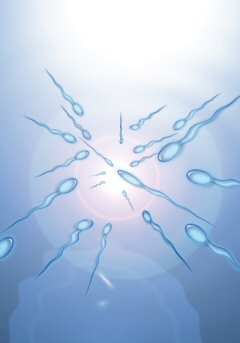 Facing a health crisis like cancer is serious enough, but the side-effects of treatment can also leave male patients infertile. Now, reproductive health experts in the UK believe that teenage boys should routinely be encouraged to bank their sperm before treatment, so they can father children in the future. Patients as young as 13 are capable of producing semen samples with normal sperm counts which can be frozen for future use.
Facing a health crisis like cancer is serious enough, but the side-effects of treatment can also leave male patients infertile. Now, reproductive health experts in the UK believe that teenage boys should routinely be encouraged to bank their sperm before treatment, so they can father children in the future. Patients as young as 13 are capable of producing semen samples with normal sperm counts which can be frozen for future use.
Their recommendation is based on a study, published in the Archives of Disease in Childhood, conducted by researchers at the University of Manchester. The researchers say that information on sperm banking should be provided to all teenage male patients, and medical professionals should be available to discuss the issue with them.
Infertility arises from chemotherapy treatments that can damage the sperm-producing portion of the testes. For this reason, infertility is very common among male survivors of childhood cancer. A previous study had found that 77 percent of childless male cancer patients aged between 14 and 40 said they would like to father children in the future, but only half of these patients had been given the option of banking sperm, and only a quarter had done so successfully.
With this in mind, the new study focused on what obstacles might exist to sperm banking among these patients. The timely provision of information regarding sperm banking was identified as one important component. Some of the reasons that males didn't bank sperm included being too sick to do so, not having reached puberty and psychological issues. The males with psychological issues showed higher levels of anxiety, more difficulty in discussing fertility, and tended to be less knowledgeable about sperm banking.
"These young men are coping with a life threatening illness and their future fertility is often not a priority for them. Our study showed that most teenage and young adult cancer sufferers were able to store semen when this was offered to them. Sperm banking should be seen as a routine part of treatment for these patients," said researcher Dr Guy Makin.
Based on material from the University of Manchester

